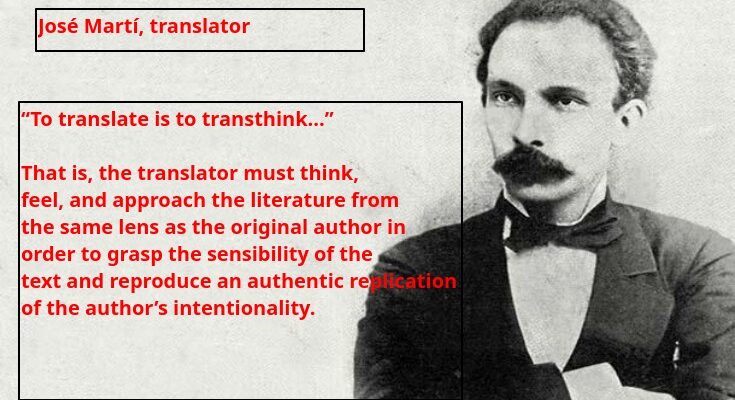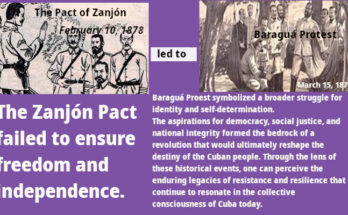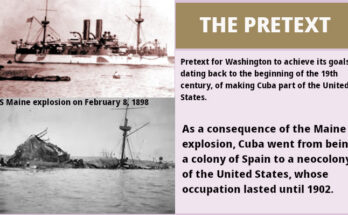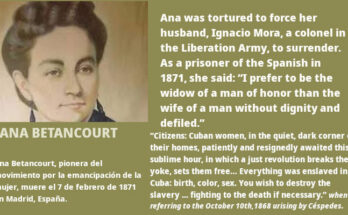José Martí, Apostle of the independence Cuba, notable writer, poet, and politician, is often celebrated for his contributions to literature and his role in the fight for Cuba’s independence from Spanish rule. However, one of his lesser-known yet significant roles was that of a translator. This aspect of his career not only highlights his linguistic prowess but also underscores his commitment to cultural exchange and the dissemination of ideas across borders. By examining Martí’s work as a translator, we can better appreciate his broader mission to foster understanding and unity among varied nations and peoples.
Martí was born on January 28, 1853, in Havana, Cuba. From an early age, he exhibited a profound love for literature and language. His education allowed him to learn various languages, including English, French, and Italian. This multilingual proficiency became a vital asset in his later endeavors as a translator. Martí recognized that language serves as a bridge between cultures, enabling the transfer of knowledge, ideas, and artistic expressions. His dedication to translation was not merely a professional pursuit; it was an integral part of his vision for liberation and human dignity.
One of Martí’s most notable contributions as a translator was his work with the writings of renowned authors and philosophers. He translated works by international literary figures such as Ralph Waldo Emerson, whose essays on self-reliance and individualism resonated deeply with Martí’s own aspirations for personal and national identity. Through these translations, Martí introduced Cuban readers to new philosophical ideas, thus enriching their intellectual landscape. This endeavor also allowed him to frame the Cuban struggle for independence within a global context, demonstrating the interconnectedness of freedom movements worldwide.
Moreover, Martí’s translation efforts extended beyond literature to include political discourse. He translated key works that advocated for democracy, social justice, and human rights. In doing so, he sought to fortify the ideological foundations of Cuba’s independence movement. For instance, Martí translated texts by influential American writers and thinkers, which provided compelling arguments for liberty and moral responsibility. These translations were instrumental in cultivating a sense of urgency among Cubans and encouraging them to seek autonomy from colonial oppression.
In addition to translating works from other languages into Spanish, Martí also engaged in translating the essence of Cuban culture to the world. He sought to portray Cuba not only as a colony under foreign rule but as a vibrant nation with its own unique identity, history, and cultural heritage. His essays and journalistic writings illuminated the richness of Cuban life, showcasing its landscapes, customs, and complexities. Through his pen, Martí aimed to dismantle stereotypes and foster a greater understanding of Cuban aspirations and struggles among international audiences.
Martí’s role as a translator also encompassed the translation of ideas and values. He believed in the necessity of mutual respect and understanding among different cultures. His commitment to cultural diplomacy was evident in his advocacy for a united Latin America, which he viewed as a means to counter imperialism and promote regional solidarity. By translating not only words but also the underlying sentiments and philosophies, Martí endeavored to create a dialogue between nations that transcended geographical and political boundaries.
Despite his many achievements, Martí’s translation work was fraught with challenges. The act of translation involves more than mere linguistic conversion; it requires sensitivity to cultural nuances and contextual meanings. Martí’s task was further complicated by the fact that he often had to navigate the political tensions of his time. His translations could be seen as radical, particularly when they challenged colonial ideologies or elevated indigenous voices. Nevertheless, Martí remained undeterred, driven by his conviction that translation was a powerful tool for justice and liberation.
As a translator, José Martí embodied the belief that literature and ideas could transcend time and space. His legacy continues to resonate in contemporary discussions about the importance of cultural exchange in a globalized world. In an era where barriers of language and culture often impede understanding, Martí’s work serves as a reminder of the potential for translation to foster empathy, cooperation, and a shared vision for a more just world.
In conclusion, José Martí’s contributions as a translator were crucial not only in disseminating knowledge and ideas but also in shaping the narrative of Cuba’s quest for independence. His ability to traverse linguistic and cultural divides positioned him as an important figure in the interplay of local and global discourses. Martí’s work reminds us of the enduring power of translation to connect individuals and communities, fostering a deeper appreciation of our shared humanity in an increasingly fragmented world. Thus, as we reflect on Martí’s literary and revolutionary legacy, we must also acknowledge the vital role of translation in promoting understanding and solidarity among diverse cultures.




